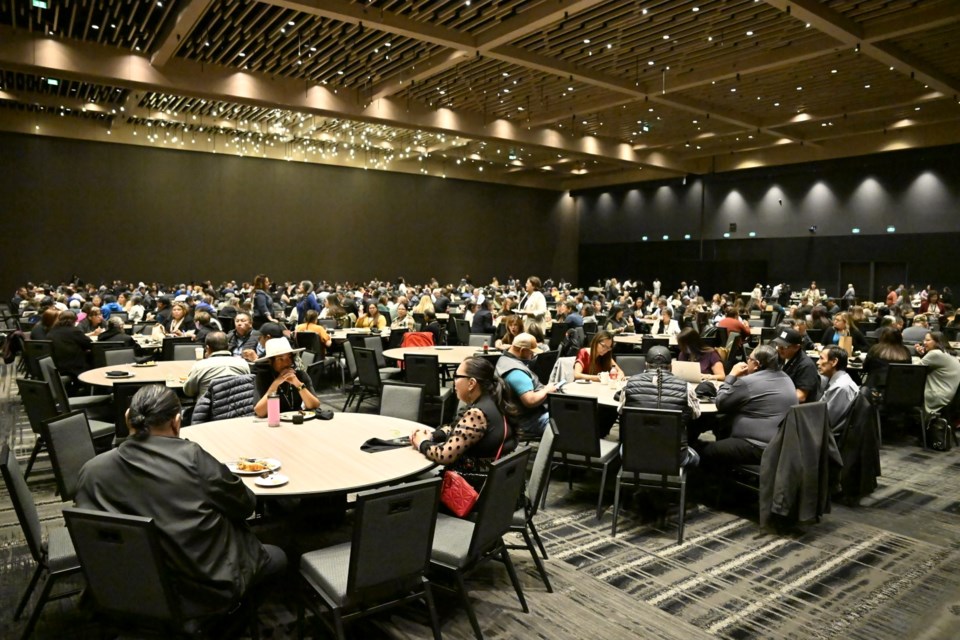ONIGAMING – Chiefs’ rejection of a settlement on child welfare reform was disappointing but not entirely surprising, says the band councillor who represented the Ojibways of Onigaming at this week’s Assembly of First Nations gathering in Calgary.
Debate at the special assembly “looked awfully divided,” Kathy Kishiqueb said Friday in a phone interview.
“All the speakers for the past two days made good points, whether they were in favour or not in favour of the agreement,” she said from Calgary. “I knew it was going to be close either way.
“Throughout the two days I was feeling very conflicted, just because all the chiefs and communities had really good points, whether they were in favour or not in favour.”
In the end, Kishiqueb voted in favour of the 10-year agreement some First Nations organizations reached with Ottawa earlier this year. She was in the minority.
Chiefs and proxies from across Canada voted Thursday to reject a settlement agreement on long-term reform of First Nations child and family services. The $47.8-billion agreement received just 167 yes votes out of 415 votes cast.
Chiefs in Nishnawbe Aski Nation (NAN), which represents 49 First Nations on Treaty 9 and Treaty 5 land across northern Ontario, voted last week to endorse the agreement.
NAN issued a statement after Thursday’s vote in Calgary expressing disappointment in the deal not being ratified but adding that “we respect the decision of First Nations-in-Assembly.”
“There is much apprehension for our communities now that the final agreement was not ratified at the national level,” the NAN statement declared. “The issues addressed in this agreement are long-standing and must be resolved.
“Our families must be able to access the supports they need, and our children must remain in their communities where they belong, with supports that acknowledge the unique remoteness challenges in NAN.”
NAN also said the agreement’s defeat was celebrated in a “shameful way” by many at the AFN assembly. “Instead of moving forward together in a strength-based approach, we saw the divisiveness that unfortunately just continues to cause harm to our children.”
Speaking the day after the vote, Kishiqueb said she voted yes on behalf of her Treaty 3 community’s chief because “I really felt that it was going to be beneficial for our children and our families, and the communities as well.”
The agreement would have given First Nations child and family services agencies “the opportunity to provide more services and more flexibility in terms of supporting the families,” she said.
